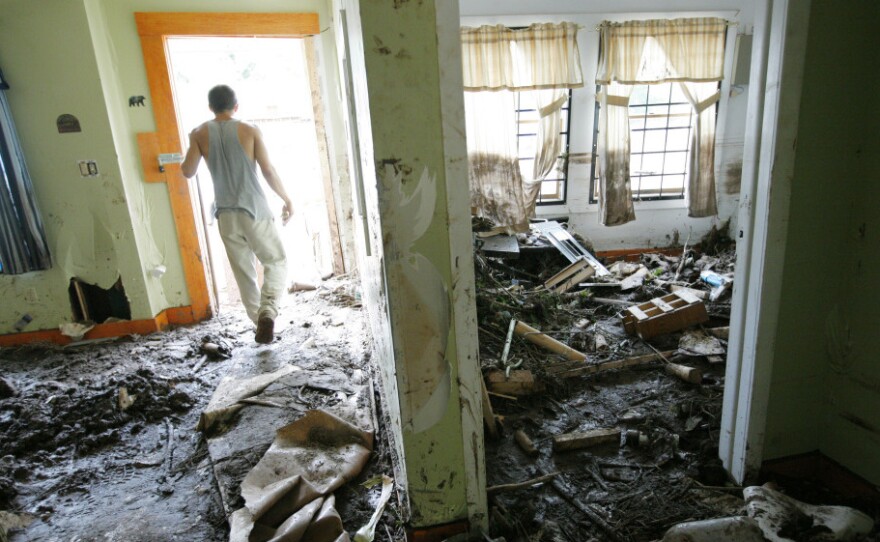Congress is at odds over a measure needed to keep the government operating past the end of the month.
While lawmakers have a week to work out their differences before the government faces another partial shutdown, one agency faces a much earlier deadline.
The Federal Emergency Management Agency will run out of money early next week, putting a halt to projects in communities around the country still struggling to recover from this year's spate of hurricanes, tornadoes and wildfires.
The temporary spending bill totals more than $1 trillion, but it is a dispute over several billion that has once again exposed the deep divisions between Republicans and Democrats.
The Senate has approved some $6.9 billion in FEMA funding; the House around $3.7 billion. But House Republicans insist that the FEMA spending be offset with cuts elsewhere in the budget, and Senate Democrats refuse to go along.
Unless lawmakers find a way to solve the dispute, the consequences for people depending on FEMA funding will be severe.
No Money For Communities, Individuals
FEMA's disaster relief fund, drained by an extraordinary string of natural disasters this year, is down to $175 million, and officials predict that money will run out by Tuesday. If that happens, says Barry Scanlon, a FEMA official during the Clinton administration, it will be a first.
"If they don't replenish the fund, it's going to be the first time in history that the disaster relief fund has hit a zero balance," Scanlon says. "And what that means is FEMA is basically going to have to shut down. They won't be providing states or localities with money to rebuild infrastructure, whether it's bridges, schools. All these people trying to recover from Hurricane Irene or Joplin from the spring or Alabama [both hit by tornadoes] — a host of these things, that will shut down."
And Scanlon, president of consulting firm Witt Associates, says along with community reconstruction for this year's disasters, individual aid to disaster victims will also be cut off, affecting people "at the low end of the economic scale, who may need $1,000 to buy new clothes for their children or get food, get appliances."
FEMA officials in the field will be sent home if funding runs out.
'What If There Was A Disaster Tomorrow?'
Among the many communities still recovering from what became Tropical Storm Irene last month is the town of Rochester, Vt. Parts of the town were cut off when roads washed out. Selectman Doon Hinderyckx says they're still being rebuilt and a loss of FEMA funds will be costly.
"Without that money, probably some of the Band-Aids won't get turned into permanent fixes that quickly, and it will probably end up costing more money for FEMA in the long run and lead to ... quicker failures of the infrastructure," he says.
Hinderyckx calls Congress' deadlock insulting.
If the disaster relief fund does run dry, officials at FEMA don't have much flexibility. Dan Kaniewski at George Washington University's Homeland Security Policy Institute says FEMA Administrator Craig Fugate is prohibited from shifting funds around.
"What if there was a disaster tomorrow? We can't predict what's going to happen next — a terrorist attack, a hurricane or wildfires, whatever it may be," Kaniewski says. "He needs to be able to provide the victims of those disasters immediate assistance. And as of Tuesday, he's not going to be able to do that."
Kaniewski says lawmakers need to act like adults and realize they're putting disaster victims at risk. He also says President Obama should speak out.
Copyright 2022 NPR. To see more, visit https://www.npr.org. 9(MDAzMjM2NDYzMDEyMzc1Njk5NjAxNzY3OQ001))







